When Pennyblackmusic last spoke to South London-based singer-songwriter and musician Mark Rowland in 2020 about his band The Volunteered, it was just about to release its second EP, ‘We Fall Apart’. A modest self-release, ‘We All Fall Apart’ ran to six tracks and was available on download only, but since then it has been picked up by the durable London indie label Scratchy Recordings and has just been reissued on vinyl as an album with three additional songs. Alongside tracks such as opening whiplash fuzz rock tune ‘Going to Amsterdam’, the psychedelic Americana of ‘Bless the News’ and elegiac piano-driven closer ‘Something New;, the additional songs – the brooding melancholia of ‘Tell Them What They Want’, the deceptively upbeat and breezy ‘Fall Back’ and the skewed pop of ‘Bottleneck’ – continue to highlight The Volunteered’s experimental edge and lo-fi versatility. The Volunteered has evolved elsewhere too. Originally based around Mark on acoustic guitar and bass and his bandmate in his previous group Partisan Waves and one-time school friend Paul Webber on electric guitar and percussion, it has developed into a five-piece group, also featuring a pianist, a bassist and a drummer. All previous Volunteered shows before lockdown were solo vehicles for Mark, but since gigs started up again they have featured the new. expanded line-up of the band, including the launch gig for the album at the end of February. Pennyblackmusic spoke to Mark Rowland about the ‘We Fall Apart’ album, and began by asking him why he decided to radically alter the running order of the original tracks on it. PB: You have almost completely changed the track order of the old songs from the original EP. You could have just put the new tracks at the end or interspersed them amongst the old tracks while keeping them in the same order, but 'Going to Amsterdam', which was the third track on the original EP, is now the first track, 'Old Life' which was second is now sixth, and 'Bless the News' which opened it is now third . Obviously a lot of thought has gone into this. Why have you decided to swap things around? MARK ROWLAND: Putting this album together has been a massive learning curve for us, and one of those lessons was how to sequence a record! I thought my EP sequence was pretty good, but Simon Berridge (Scratchy Records owner) showed me that I'd missed a trick. Initially I wasn't sure whether he was right – I didn't want to open with 'Going to Amsterdam' because it's the rockiest song on the album and I wasn't sure if it would be misleading compared to the rest of the record. But he proved to me my worries were unfounded. I'm big enough to admit that his sequence is much better than mine. It makes the whole album feel stronger because of it. We never really knew what we were doing when we put the bulk of these songs together. Before the pandemic hit I was sure we were going to put an album together, but I didn't know if we'd use these recordings or re-do them. In the end we did what we could with what we had. It's all been a happy accident. PB: In what other ways do you see the track listing as having improved? MR: I think the new sequence does a better job of maintaining a decent pace. It grabs your attention and holds it more. The old version opened with 'Bless the News', which has some really big fans, but it's not necessarily as immediate. I know a couple of people who weren't sure about it on first listen, but then it sort of opened up to them. We're hardly a known entity, so it's much better to go in all guns blazing. And people do seem to really like 'Going to Amsterdam'. Also, Simon suggested we remixed 'Going to Amsterdam' so that it's closer to the original demo, and that seems to have done it some favours as well. PB: Scratchy Records has been going for a long time, twenty-five years this year, but it tends to release just three or four records a year, which includes Simon's own music as Simon Berridge. It is quite a prestige getting an album release through them. Why was Simon so keen to release your music? MR: This is a slightly long story. When we were recording these songs, we were kind of figuring out what we were doing as we went. We had to record them remotely – not all because of the pandemic, it was just more practical for us to do that. We also were basically a two-piece band at that point, so I wanted to get guests on the songs to make it feel like a bigger thing. I already knew Simon, who was a fan of our previous band Partisan Waves, so I asked if he wanted to do a guest solo on 'Going to Amsterdam'. Basically, he fell in love with that song. A few months after we cobbled together the EP, he got in touch and asked if we wanted to put something out. I thought initially it would be a single, but. after speaking to the distributor, it was then going to be the full EP. Then it was going to be a mini-album, then it became an album. It just snowballed. It was exciting, but also quite terrifying. It's hard not to feel like all of this is unearned to be honest with you. A form of imposter syndrome, I guess. We haven't been able to do the work you'd usually do to build an audience because we've been in lockdown for so long. Usually we'd have more buzz around us. Not to say that there's no buzz, but it's probably lower than it would have been if we'd have been out playing regular shows. It's definitely been an interesting journey. PB: While taking your point about imposter syndrome, two thirds of Partisan Waves are in The Volunteered, and you did a lot of the groundwork and played some gigs with them. Perhaps you are being a bit harsh on yourself. How much of Partisan Waves' audience did you take with you? MR: I think we took some of that audience with us, but not as much as we could have. I did post on the Partisan Waves Facebook page announcing we had a new thing, but it's been a real slow burn. The Volunteered was just a moniker for me to put out very stripped down, very lo-fi versions of songs I had knocking about. I played a few solo shows but the focus was to just enjoy the process of writing. Then Paul wanted to come on board and we started trying to record better versions, but it didn't really become a proper band until 2020. It was the fact that we were doing better and better work, that made me decide to take it a little more seriously. I'd say we've had more modest success with The Volunteered than we ever had with our old band. It's all very indie/underground, but we've had radio play, got on Spotify playlists, etc, which we never managed with Partisan Waves. PB: Who were the other guests other than Simon on this record and to which tracks did they contribute? How did you become involved with them? MR: Some were people I'd got to know over Soundcloud. René Methner is the frontman of a German indie rock band called Para Lia. He's an extremely enthusiastic supporter of bands and artists on that site, and was of us too. He helped us get some initial buzz around the tracks for this release. I asked him to contribute backing vocals on 'Going to Amsterdam'. I asked Cody Ketchum, a singer-songwriter from Detroit, to do the same. I'm a big fan of his songs, which sit somewhere between Big Star and C86 music in style – very Alex Chilton-like melodies and sort of dinky, lo fi arrangements, which I like. I'd met Ritch Spence, who plays with UK country singer Emma King, at a party, and we hit it off over our mutual love of grunge (the original, ugly Seattle bands, rather than the slick thing that happened later). He actually recorded two parts for 'The Lights' – one atmospheric piano part, and one more traditional, but he's such a good player – he has a very flourishy style – that it made us sound like rank amateurs! So we went with the subtler take, Finally, our friend Liz Sadik recorded piano on 'Something New' – one take, straight into a phone – which really added to that track. Then she subsequently joined the band. PB: You caught one of the nastier strains of COVID at the start of the pandemic and for a while it was doubtful whether you would sing again. At another level do you think lockdown was in some ways beneficial to you as it gave you more time to experiment and work out what you wanted to do? MR: From a songwriting perspective, 100% yes. It gave me the space to really work on my songwriting and make improvements. I wrote a lot during lockdown, in short, hyper productive bursts. The first song I wrote was about having COVID, which was, as you say, very rough. I think I was bedridden for about five weeks – it's actually hard to tell as it all started melding into one. I couldn't leave the room, couldn't really do anything, but I was too tired to worry about it. I had a bit of oxygen administered near the beginning, then I was put on steroids, but as a person not in the 'at risk' age group I had to tough it out at home. I only really worried when I had recovered enough to leave the room and I could feel the impact it had on my body. I was really weak because I hadn't really eaten anything while I was ill. It was hard to get my breath, and walking upstairs was a challenge. Worst of all, I couldn't get any power into my voice. So really, the effect on the initial recording period was that everything was done by necessity. Demo takes that we planned to re-do had to be used. We couldn't record as many songs as we'd have liked to do. It put limits on us rather than open up time to experiment. Perhaps if we had a more positive mindset, we could have perhaps waited and finished it later, but at the time I didn't know if I'd ever get the strength back in my voice. Thankfully, I worked on it, and it came back. To end on a more positive note, we have a lot of songs to play with for the next album, mostly new songs written in lockdown, and we've had the luxury to really think about ideas and push the envelope a bit. To the point where I'm really excited to start working on the next one, though I don't want to rush it. PB: Why have you decided to release the album on vinyl and download only and dispense with a CD version? MR: At the very indie end of the music market, it makes more sense to put out a vinyl or cassette release than it does a CD. People tend to listen to digital and pay for the premium formats. They want something that looks good on the shelves as well as sounds good. And the old analogue formats do sound good. That's not to say we'll never put out a CD version of the album – we're doing a limited run of vinyl and will see how well it sells. This first printing will hopefully have a collectability to it. What happens next really comes down to how well the album sells. PB: Who is in the current line up of The Volunteered then? How many of them played on 'We Fall Apart'? MR: There's five of us at the moment – Paul Webber and I, plus Liz Sadzik, her husband Jake on bass, and Paul Douglas on drums. The album is mainly Paul and I, however – Liz plays on the last track, and Jake and Paul D joined after the album was finished. The core of the band is still Paul W and I, but I hope the current line-up lasts for a while yet. PB: You mentioned the last time that we interviewed you that many of the songs have an ecological/conservation theme in part inspired by the birth of your children. Is the title ' We Fall Apart' a reflection on time running out for the planet? Is that why you have put a drawing of the old fashioned timer on the sleeve? MR: To an extent, yes, though I think that theme is much stronger on the songs that will make up the next record. It is there, particularly on 'Something New', but it's perhaps not as explicit as on some of our other songs. The title of the album comes from a line within 'The Lights'. With that line, I was thinking about the passage of time, ageing, how we change, etc. That's definitely a big theme, I think. A lot of reflection, and looking to the future. The choice of the illustration wasn't really conscious but I expect those themes played a subconscious part in selecting it. It's from an old book from the 1800s that I found in the British Library photo archive. PB: 'Tell Them What They Want' builds from something quite small into something quite epic, Who is that directed at? MR: That's one of the oldest songs on the record. I really wanted it to build to a crescendo. It's about my wife's horrible experience with an ex-employer when she was pregnant with our first child. It culminated in a tribunal and it had a massive impact on her self-esteem at the time, though thankfully she's very resilient. I wanted the song to give a voice to the feelings of powerlessness people often feel when standing up to people with power, whether it's on a micro or macro scale. I guess the message is slightly downbeat in that it's kind of getting at the fact that most of the time you have no choice but to give up, as the odds are so stacked against you. It's actually a very simple song – just three chords, which is unusual for me. We had a go at recording it on our first EP, which is really a glorified demo, but I think we really do it justice with this version. PB: 'Fall Back' is the most upbeat track on the album, and seems to be about abandoning past ties and not only not knowing where " in three months time...where the fuck I'll be" but at one level celebrating the fact. What was the inspiration for that one? MR: That's even older than 'Tell Them...'! This was the first song I wrote after Partisan Waves broke up. I see it as a bit of a bridging song between the two bands. I actually think it stands out from the rest of the songs on the album a little for that reason. I wasn't going to include it on the album but Paul likes it, and it was easier to do than building an arrangement for a newer song! I think of 'Fall Back' as a bit of a therapy song. I'd been seeing a therapist for about two years when I wrote it, so I think it's written very much within a therapy mindset. It's basically about relinquishing control and caring less for your own sanity. I can be an extremely anxious person, and left to my own devices I can tie myself up in knots about things that go wrong. This is kind of me saying: "none of this matters." PB: In 'Bottleneck' you sing in contrast about "the bitter taste of expectation washed down with the seventh rum of the night". What Is that song about and what do you mean by *it is just a way to get by"? MR: To be honest, I just thought that was a cool line for a song. I guess it's a song about disappointment and relying on unhealthy crutches, but it's one of those songs where I really put the lyrics together based on what felt right. If it has a meaning, then fantastic, but I think it was all fairly subconscious for me. I don't know if you've watched the new Beatles documentary, 'Get Back' – you get to watch the band create the title song from the first little idea to a fully realised song, and I expect a lot of songwriters will relate to that process. You'll be noodling and you lock in on a melody, and then you try to find the words that fit that melody most naturally. What the hell is 'Get Back' about? If you read the lyrics, you don't get much of a clue there. It's all nonsense, if we're honest. The Beatles basically pulled together stuff because it sounded right within the context of the song, not because it has great meaning. And I think like all great songs, you can find some personal meaning in it if you want to, but it's not necessarily the point. It evokes a more abstract emotional response, the combination of the tone, the rhythm, the melody and the words, that just makes sense in your head. I'm not comparing my weird little song to 'Get Back' by any means, but I think the lyrics were generated in a similar way. PB: You have mentioned you are working on a second album. This first one is really diverse. Do you see it as a blueprint for working out what you are able to do, What direction do you see the second one as taking in comparison? Is it too early to say? MR: It will be fairly diverse. I just write that way, I think. Sometimes it feels right that a song should be folky, or a full-on rock song, or a bit country, or something in between. I like bands like Sparklehorse, Pavement, Spoon etc that play quite varied songs and styles while still feeling like themselves. I can’t say exactly what the next album will be like as we currently have about sixteen songs and it will be a ten or eleven-track album, but it will be a progression from this one. I think it will be a slightly more political record, but I don’t get too specific about that, and there are still plenty of personal songs. It’s mostly a distillation of my thoughts and feelings during lockdown, with a couple that pre-date the pandemic but still fit thematically. It will have more varied instrumentation - definitely more piano, but also other keys and maybe even a bit of strings and brass, if I get my way. We’ve incorporated a few of the new songs into the set, and they’re getting very well received. We’re still working on the arrangements at the moment, but I love that stuff more than anything else. PB: What are The Volunteered's other plans for the future? Is it now to play gigs as widely as possible? MR: Yes, to play as many gigs as our schedules will allow, probably do some more live streams as well. If we can manage a gig a month I’ll be happy, but we’ll see how it goes. I’d ideally like to find a venue where we can sort of find residency in, playing there regularly and cultivating a local audience. As a live prospect, we’re still very wet behind the ears (though we’re all seasoned players), so a big objective is to develop a comfort and a stage presence that fits this band. And to test the new material in front of an audience. I hope we can start working on the next album sometime around the summer, but we’ll see. I feel like the next one will be our magnum opus, but I always feel very ambitious at this stage. Then once it’s done, all I can think about are the things I could have done better. PB: Thank you.
Band Links:-
https://thevolunteered.bandcamp.comhttps://www.facebook.com/TheVolunteeredMusic/
https://twitter.com/TheVolunteered
Play in YouTube:-
Picture Gallery:-
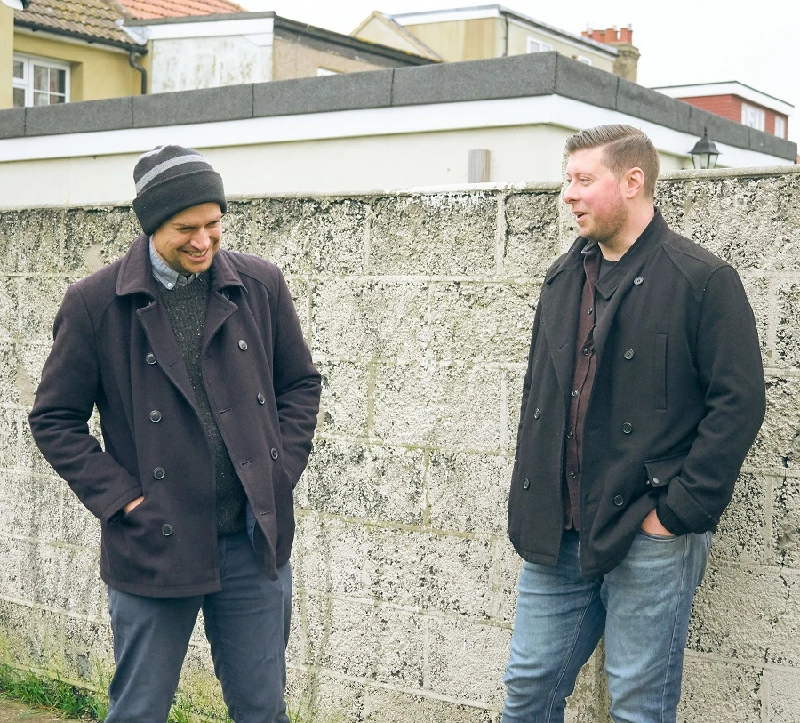
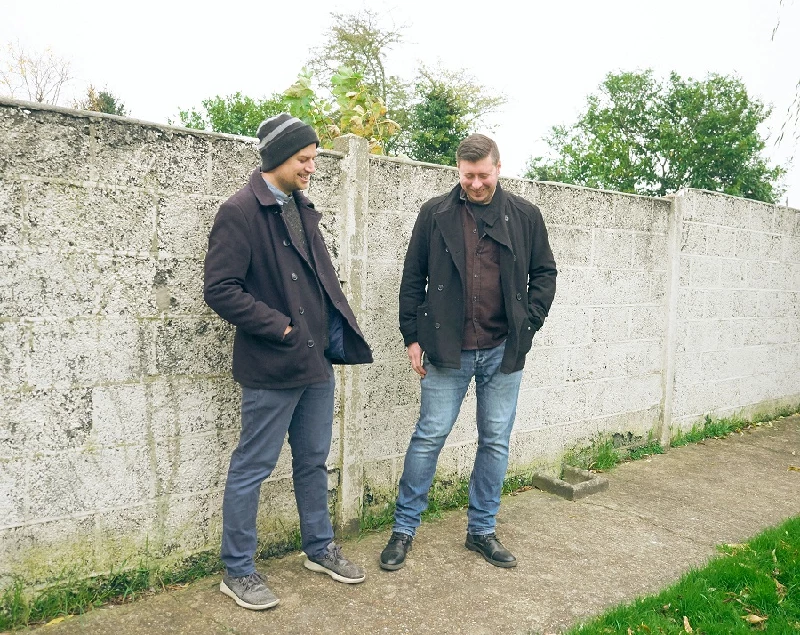
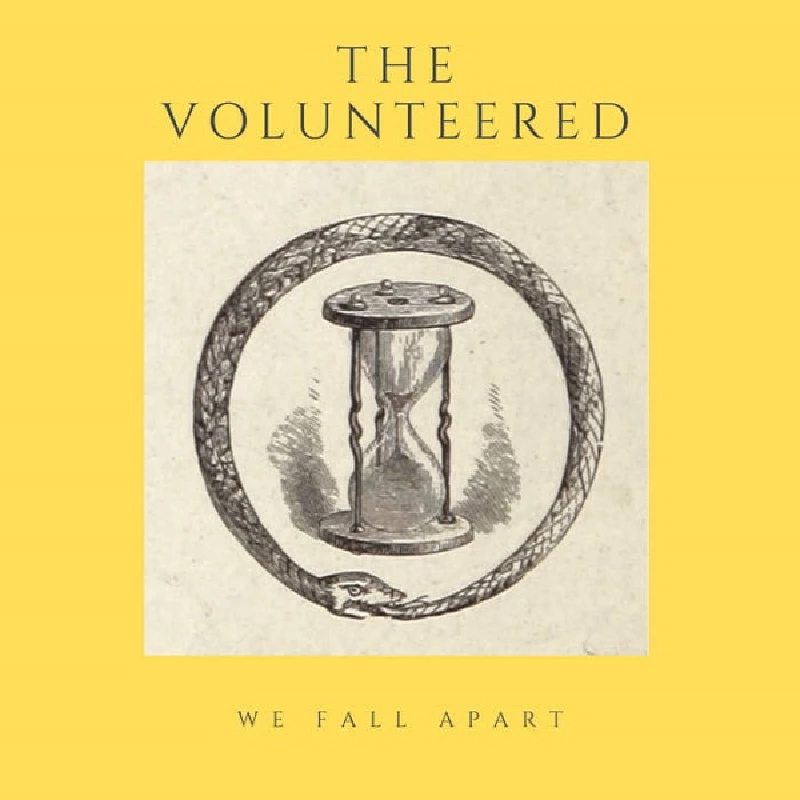
intro
Mark Rowland, the frontman with South London indie band The Volunteered, talks to John Clarkson, about its debut album 'We Fall Apart', which has expanded from an EP into a vinyl LP, and the change in its line-up from a duo into a five-piece group
interviews |
|
Interview (2020) |
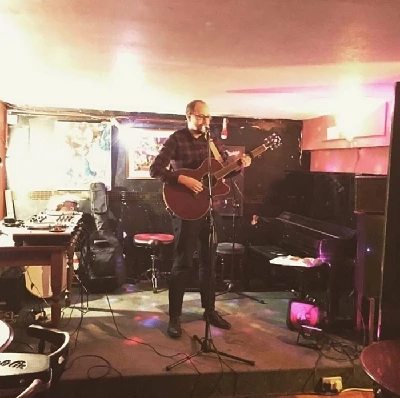
|
| John Clarkson speaks to Mark Rowland, the frontman with London indie band The Volunteered, about his band's growing line-up and sound and their second EP ‘We All Fall Apart’. |
| Interview (2018) |
photography |
|
Photoscapes (2024) |
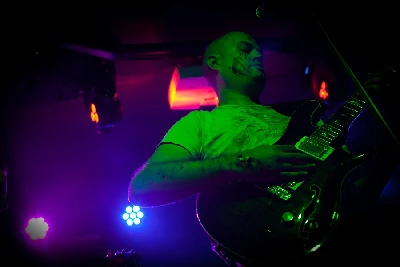
|
| Marie Hazelwood takes photos of indie band The Volunteered at our 25th Anniversary gig at The Water Rats in London. |
most viewed articles
current edition
Spear Of Destiny - InterviewRobert Forster - Interview
Fiona Hutchings - Interview
When Rivers Meet - Waterfront, Norwich, 29/5/2025
Carl Ewens - David Bowie 1964 to 1982 On Track: Every Album, Every Song
Brian Wilson - Ten Songs That Made Me Love...
Pistol Daisys - Waterfront, Norwich, 29/5/2025
Gary Numan - Berserker
Deb Googe and Cara Tivey - Interview
Roberta Flack - 1937 - 2025
previous editions
Heavenly - P.U.N.K. Girl EPBoomtown Rats - Ten Songs That Made Me Love....
Dwina Gibb - Interview
Trudie Myerscough-Harris - Interview
Oasis - Oasis, Earl's Court, London, 1995
Sound - Interview with Bi Marshall Part 1
Susie Hug - Interview
Chuck Prophet - Ten Songs That Made Me Love...
Ray Humphries - Interview
Sukie Smith - Interview
most viewed reviews
current edition
Peter Doolan - I Am a Tree Rooted to the Spot and a Snake Moves Around Me,in a CircleGarbage - Let All That We Imagine Be The Light
Little Simz - Lotus
Suzanne Vega - Flying With Angels
John McKay - Sixes and #Sevens
Vultures - Liz Kershaw Session 16.06.88
Billy Nomates - Metalhorse
HAIM - I Quit
Vinny Peculiar - Things Too Long Left Unsaid
Morcheeba - Escape The Chaos
Pennyblackmusic Regular Contributors
Adrian Janes
Amanda J. Window
Andrew Twambley
Anthony Dhanendran
Benjamin Howarth
Cila Warncke
Daniel Cressey
Darren Aston
Dastardly
Dave Goodwin
Denzil Watson
Dominic B. Simpson
Eoghan Lyng
Fiona Hutchings
Harry Sherriff
Helen Tipping
Jamie Rowland
John Clarkson
Julie Cruickshank
Kimberly Bright
Lisa Torem
Maarten Schiethart